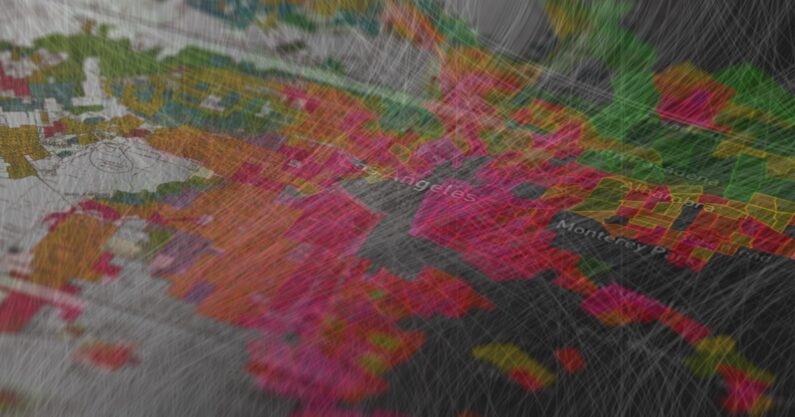In partnership with the National Community Reinvestment Coalition, Boatwright Library’s Digital Scholarship Lab recently released a new project “Not Even Past: Social Vulnerability and the Legacy of Redlining” that visualizes the connection between health disparities today to the infamous HOLC redlining maps of the 1930s. The site supplements a report from the NCRC that statistically analyzes those connections and offers a series of policy recommendations aimed at mitigating the pervasive health disparities between predominantly Black and Latinx communities and white communities. As their report documents and the maps visualize, neighborhoods of color that experienced decades of divestment because of redlining and other discriminatory real estate practices have significantly higher rates of asthma, diabetes, high blood pressure, mental health problems, and other health conditions today.
The NCRC’s report is just the latest study to build upon the DSL’s “Mapping Inequality: Redlining in New Deal America“. Besides receiving nearly a million visits, all of the data used in “Mapping Inequality” is downloadable. It has been used by scientists to document the correlations between urban heat islands today and redlining a century ago–a study featured in a New York Times article a couple of weeks ago. Other studies using “Mapping Inequality’s” data include a white paper from the Federal Reserve Bank of Chicago measuring the impact of redlining on twenty-first-century wealth disparities and a study on disparities in access to healthy foods, which the geographer calls “supermarket redlining.” Closer to home, the “Mapping Inequality” data was used by former Boatwright staff member LaToya Gray in a project for an SPCS course that received first place in the educational category of ESRI’s User Conference contest.
American Panorama: An Atlas of United States History, of which “Mapping Inequality” is a part, received last year’s Roy Rosenzweig Prize for Innovation in Digital History from the American Historical Association.
~ Rob Nelson, Director of the Digital Scholarship Lab

